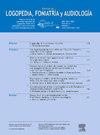神经退行性疾病患者经皮内镜胃造口术决策的临床、生物伦理学和心理社会观点
Q3 Nursing
引用次数: 0
摘要
背景与目的神经退行性疾病患者的吞咽困难在决定是否实施经皮内镜胃造口术(PEG)时提出了临床和伦理挑战。语言病理学家(slp)在这个过程中扮演着至关重要的角色,他们不仅评估吞咽困难的严重程度和潜在的病理,还评估生物伦理和社会心理因素。先前的研究表明,这一决定并不仅仅基于临床标准,而是综合了多个方面。本研究旨在探讨slp对神经退行性疾病患者PEG适应症决策的临床、生物伦理和社会心理感知。患者或材料和方法采用半结构化访谈对10名在神经退行性疾病中处理吞咽困难经验丰富的slp进行了定性研究。内容分析用于确定决策中的新模式,将结果分为五个关键维度:诊断和预后考虑因素、临床吞咽评估、社会和医疗保健背景、决策过程以及SLP在PEG适应症中的作用。结果:PEG的决策不仅依赖于临床评估,还考虑到个人的自主性、预先指示、感知生活质量和社会家庭背景。确定了与疾病进展和家庭参与相关的伦理困境。此外,slp强调需要加强生物伦理学和沟通方面的培训,以有效应对这些挑战。结论:本研究强调了跨学科方法对PEG适应症的重要性,平衡临床、伦理和社会心理因素。建议加强生物伦理和传播方面的培训,同时制定确保公平获得专门资源的政策。本文章由计算机程序翻译,如有差异,请以英文原文为准。
Perspectivas clínicas, bioéticas y psicosociales en la toma de decisiones para la gastrostomía endoscópica percutánea en personas con enfermedades neurodegenerativas
Background and objective
Dysphagia in individuals with neurodegenerative diseases presents clinical and ethical challenges when deciding whether to implement percutaneous endoscopic gastrostomy (PEG). Speech-language pathologists (SLPs) play a crucial role in this process, assessing not only the severity of dysphagia and the underlying pathology but also bioethical and psychosocial factors. Previous studies have indicated that this decision is not based solely on clinical criteria but integrates multiple dimensions. This study aims to explore the clinical, bioethical, and psychosocial perceptions of SLPs regarding decision-making in the indication of PEG in individuals with neurodegenerative diseases.
Patients or materials and methods
A qualitative study was conducted using semi-structured interviews with 10 SLPs experienced in managing dysphagia in neurodegenerative diseases. Content analysis was applied to identify emerging patterns in decision-making, categorizing findings into five key dimensions: diagnostic and prognostic considerations, clinical swallowing assessment, social and healthcare context, decision-making process, and the role of the SLP in the indication of PEG.
Results
Decision-making regarding PEG is not solely dependent on clinical assessment but also considers the individual's autonomy, advance directives, perceived quality of life, and socio-family context. Ethical dilemmas related to disease progression and family involvement were identified. Additionally, SLPs emphasized the need for greater training in bioethics and communication to effectively address these challenges.
Conclusions
This study highlights the importance of an interdisciplinary approach to PEG indication, balancing clinical, ethical, and psychosocial factors. Strengthening training in bioethics and communication, along with the development of policies that ensure equitable access to specialized resources, is recommended.
求助全文
通过发布文献求助,成功后即可免费获取论文全文。
去求助
来源期刊

Revista de Logopedia, Foniatria y Audiologia
Nursing-LPN and LVN
CiteScore
1.10
自引率
0.00%
发文量
28
 求助内容:
求助内容: 应助结果提醒方式:
应助结果提醒方式:


